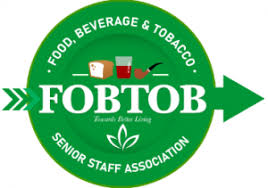
Stakeholders demand quality assurance in food, beverage production
Local manufacturers have been urged to commit to maintaining quality at all stages of production by members of the Manufacturers Association of Nigeria's Food, Beverage, and Tobacco sector.
They claimed that maintaining brand loyalty and attaining steady profitability growth depend on this commitment to quality.
The directive was given at the Manufacturers Association of Nigeria's recent Annual General Meeting of the Food, Beverage, and Tobacco Sector, which was held in Lagos.
MAN's Director General/Chief Executive Officer, Mr. Segun Ajayi-Kadir, opened the AGM by highlighting how important it is for manufacturers to put quality, standards, and innovation first in their manufacturing processes in order to stay relevant and satisfy customers.
He emphasised the need for manufacturers to work together in order to have a more significant influence on the Nigerian economy.
Ajayi-Kadir lamented the rise in electricity tariffs, citing its negative effect on an already challenged operating environment.
The MAN DG said, “Local manufacturers have shown remarkable resilience in the face of daunting macroeconomic and infrastructure challenges, particularly concerning power.
“However, manufacturers require access to electricity at a reasonable cost. Power constitutes approximately 40 per cent of our expenses, varying depending on the level of power intensity in the manufacturing process.”
Speaking on the subject of "Cultivating Value: Using Innovation, Standards, and Quality to Strengthen the Food, Beverage, and Tobacco Manufacturing Industry," The food, beverage, and tobacco sectors are important to Nigeria's manufacturing landscape, according to guest speaker Mr. Ekuma Eze, head of corporate affairs and sustainability at Rite Foods.
He mentioned that in 2022, this industry would account for about 5% of the GDP and 34% of the manufacturing sector as a whole.
Eze emphasised that structural and systemic barriers have hampered the expansion of manufacturing and its overall contribution to the economy. Despite its crucial role, the Nigerian manufacturing industry has major problems that impair its competitiveness.
"Yet the food, beverage, and tobacco producing industry maintains the title as the largest sub-sector within manufacturing, it still falls short of global competitiveness.
“Locally, manufacturers face formidable challenges, including inadequate infrastructure, high inflation rates, energy shortages, forex instability, regulatory unpredictability, security concerns, and hefty tax burdens, all of which have significantly hampered the profitability of this sector in recent times.”
In light of the African Continental Free Trade Area, he argued for focused government investments to increase the competitiveness of the subsector.
As a key component of economic development, manufacturing must be aggressively supported by our policies. He continued, "Manufacturing should be the main engine of economic growth, job creation, income generation, and GDP contribution.
Speaking at the same event, Dr. Aina Olugbenga Steven, Deputy Director of the National Agency for Food and Drug Administration and Control, praised regional producers for their continued efforts to address issues like energy rates and currency fluctuations in the context of “Nigeria’s volatile, uncertain, complex, and ambiguous business environment.”





